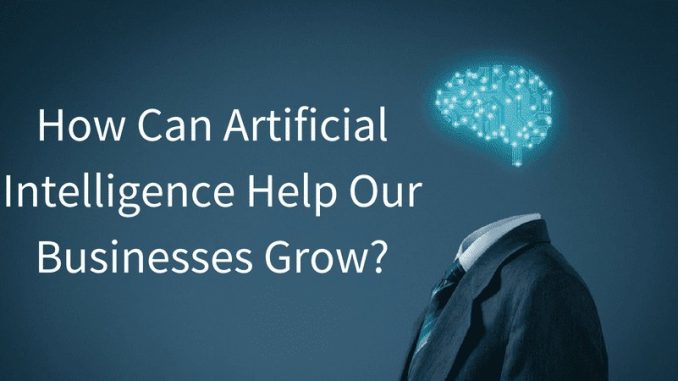
Artificial intelligence is rapidly becoming one of the most transformative forces in modern business, driving growth through smarter decision-making, enhanced efficiency, and deeper customer engagement. What was once considered a futuristic concept is now a practical tool embedded in everyday operations across industries. From startups to multinational corporations, businesses are leveraging AI to unlock new opportunities, streamline processes, and stay competitive in an increasingly dynamic marketplace. The impact of AI is not limited to any one sector—it’s reshaping how companies think, operate, and evolve.
One of the most compelling ways AI is helping businesses grow is through data analysis. Companies generate vast amounts of data every day, from customer interactions and sales transactions to supply chain movements and market trends. AI systems can process and analyze this data at a scale and speed that far surpasses human capability. By identifying patterns, predicting outcomes, and uncovering insights, AI enables businesses to make more informed decisions. For example, a retailer might use AI to forecast demand for specific products based on seasonal trends, purchasing behavior, and external factors like weather. This predictive capability helps optimize inventory, reduce waste, and improve customer satisfaction.
Customer experience is another area where AI is making a significant impact. Chatbots, virtual assistants, and recommendation engines are now commonplace, offering personalized interactions that enhance engagement and loyalty. These tools use natural language processing and machine learning to understand customer needs and respond in real time. A financial services firm, for instance, might deploy an AI-powered chatbot to assist clients with account inquiries, freeing up human agents to handle more complex issues. Meanwhile, e-commerce platforms use AI to suggest products based on browsing history and preferences, increasing conversion rates and average order value. These applications not only improve service but also create a more seamless and intuitive customer journey.
Operational efficiency is a core driver of AI adoption. Businesses are using AI to automate routine tasks, reduce errors, and accelerate workflows. In manufacturing, AI-powered robots and predictive maintenance systems help minimize downtime and optimize production. In logistics, route optimization algorithms reduce delivery times and fuel consumption. Even in administrative functions, AI can handle tasks like invoice processing, scheduling, and document classification with remarkable accuracy. This automation allows employees to focus on higher-value activities, fostering innovation and strategic thinking. The result is a more agile and productive organization capable of scaling without proportionally increasing costs.
Marketing and sales teams are also benefiting from AI’s capabilities. By analyzing customer data, AI can segment audiences, tailor messaging, and identify the most effective channels for outreach. Campaigns become more targeted and responsive, leading to better engagement and ROI. Sales teams use AI-driven insights to prioritize leads, personalize pitches, and anticipate objections. A software company, for example, might use AI to score prospects based on their likelihood to convert, enabling sales reps to focus their efforts where they’re most likely to succeed. This data-driven approach enhances performance and helps businesses grow their customer base more efficiently.
AI is also playing a pivotal role in strategic planning and innovation. By simulating scenarios and modeling outcomes, AI helps leaders evaluate risks, test hypotheses, and explore new markets. It supports faster iteration and more confident decision-making. In the pharmaceutical industry, AI accelerates drug discovery by analyzing biological data and predicting compound efficacy. In finance, it helps assess investment opportunities and detect fraud. These capabilities extend the reach of human expertise and enable breakthroughs that would be difficult or impossible to achieve through traditional methods alone.
Talent management is another area where AI is driving growth. Recruitment platforms use AI to screen resumes, match candidates to roles, and reduce bias in hiring. Employee engagement tools analyze feedback and performance data to identify trends and recommend interventions. Learning and development programs are increasingly personalized through AI, adapting content to individual needs and tracking progress over time. These innovations help businesses attract, retain, and develop talent more effectively, creating a workforce that is aligned with strategic goals and equipped for future challenges.
Despite its many benefits, integrating AI into business operations requires thoughtful planning and governance. Data quality, ethical considerations, and change management are critical factors that influence success. Companies must ensure that AI systems are transparent, accountable, and aligned with organizational values. Training employees to work alongside AI and fostering a culture of continuous learning are essential steps in maximizing its potential. When implemented responsibly, AI becomes not just a tool but a catalyst for transformation.
Ultimately, artificial intelligence is helping businesses grow by enabling smarter, faster, and more personalized operations. It empowers organizations to harness the full potential of their data, respond to customer needs with precision, and innovate with confidence. As AI continues to evolve, its role in shaping business strategy and execution will only deepen. For leaders willing to embrace its possibilities, AI offers a pathway to sustainable growth, competitive advantage, and a more resilient future.